About body and soul
Every person with a healthy mind wants to stay healthy physically too. The health trend is slowly but steadily changing the world of mass products too. According to a recent Hungarian online survey, almost one third of the 4,500 respondents paid more attention to eating more healthily during the first wave of the COVID-19 pandemic, 27 percent had more fruits and 21 percent ate more vegetables. Health consciousness is in the public mind now, but it isn’t easy to navigate on the sea of differing information.
Most of the diets popular today are based on ideas, and we can’t even say that following them requires faith, as they do have a basis to build on – they can only cause problems if they are used too strictly. Diets rooted in philosophies and lifestyles are probably more harmonious. For instance, the Indian Ayurvedic philosophy – which started spreading 10-15 years ago in the rich countries of Europe and America – is about finding a balance in every field of life, but at the same time, it is very practical in all domains, even in the related diet.
Perhaps it is the easiest to find out which diets are the most popular by checking out the information on the packaging of modern products. Reduced sugar, salt and fat content is a basic requirement nowadays, and the buzzwords are pre- and probiotics, extra protein, lactose-, gluten- and/or sugar-free, vegetarian, paleo, etc.
At the moment it seems that vegetarian and vegan eating are the most popular. Vegetarianism is spreading fast too, and not only because of the health trend, but also due to the tendency to make consumption and production more sustainable. Not only vegetables but also plant proteins are becoming more and more important for consumers.
Functional food is the latest star, which falls in line with the recent snack trend too.
The world of snack is developing at breakneck speed and it combines many modern different trends, e.g. convenience, bite-size meals, on-the-go eating, diversity, fusion of different cuisines. //
Building on consumer consciousness

Judit Tőzsér
head of communication
Lidl Magyarország
Lidl’s head of company communication Judit Tőzsér said: healthy eating and choosing products consciously play an important role in shoppers’ health preservation. This trend is reflected in the growing number of new products appearing on the shelves of Lidl stores, such as the discounter’s own GMO-free Húsfarm products, Pikok Pure meat products that contain natural ingredients only and the new plant-based Next Level Meat meat substitutes. //
Adapting to customer needs at all times

Márk Maczelka
head of communications
SPAR
Márk Maczelka, SPAR’s head of communications underlined: their product selection underwent considerable changes in the last year and a half. The ‘lifestyle’ category that they have created covers healthy products.
There is great need from shoppers who follow a healthy diet or suffer from food intolerance for being able to enjoy some kind of snack. SPAR keeps offering new products in this category – both branded and private label ones. //
Quality matters too
Bernhard Haider, managing director of Aldi Magyarország. ‘Aldi offers more than 110 Enjoy Free! private label products to health-conscious shoppers and customers living with some kind of food intolerance. In 2020 70 percent more organic, vegetarian, sugar-free and low-sugar products are available in Aldi stores than 3 years earlier. Demand is also increasing for healthy snack-type products. Natural products cost a bit more than the average, but shoppers are willing to pay a higher price for top quality and good taste.’ //
A bigger selection of organic products

Eszter Varga
external communications
manager
Tesco
Eszter Varga, external communications manager of Tesco told: in the last two years about one-third of their product selection was replaced, due to the new consumption trends and food innovations. The increase was the biggest in the gluten-and sugar-free categories and in the protein segment – this is also true for private label products.
Last summer organic food sales increased by one third. In the Tesco Organic range, shoppers can find breakfast cereals, oilseeds, soft drinks and wholemeal pastas. //
Concentrating on local products

Roland Kanyó
marketing and
PR-manager
dm Magyarország
Roland Kanyó, marketing and PR manager of dm said that being eco-friendly is a priority for the drugstore chain. Customers come across a growing number of organic, green and natural products in dm stores. It is very important for dm to sell as many local products as possible. From their 900 different food products, 450 are organic.
A large selection of free-from foods is also available. Sales have been increasing by two-digit numbers in the food category – and the coronavirus pandemic multiplied this. //
The target group is a success factor, too

Szabó Réka
kereskedelmi igazgató
Kifl i.hu
Kifli.hu Online Supermarket opened in December 2019 – informed commercial director Réka Szabó. In their product matrix, healthy foods have a special place. Kifli.hu’s product selection contains much more ethical, sustainable and local products than the food industry’s average. A large proportion of their customers can afford to buy premium snacks and meals too. //
Snackification
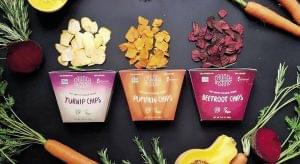
One of thousands of series of dried, baked and puffed vegetables
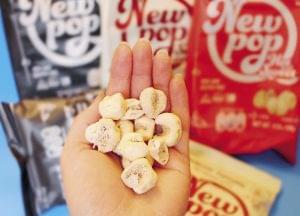
Flavoured popcorn has always been a star, so will it be – and recently also popped without hulls
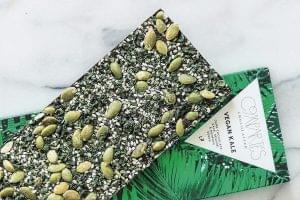
Sounds unbelievable at first?!: luxury chocolate with kale (and seeds)
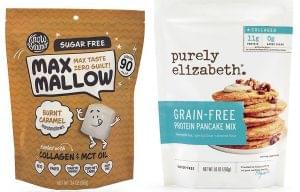
Sugar-free marshmallow is quite bizarre, too!
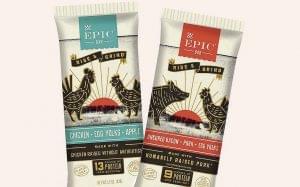
Meaty snacks are also hard to recognise – these are pork and chicken bars with egg yolk and apple
Related news
Lidl Magyarország wins Top Employer award once again
🎧 Hallgasd a cikket: Lejátszás Szünet Folytatás Leállítás Nyelv: Auto…
Read more >Related news
Zsófia Bánhegyi is the marketing, communications and public relations director of HUN-REN
🎧 Hallgasd a cikket: Lejátszás Szünet Folytatás Leállítás Nyelv: Auto…
Read more >Generation Z: new rules on the labour market
🎧 Hallgasd a cikket: Lejátszás Szünet Folytatás Leállítás Nyelv: Auto…
Read more >







